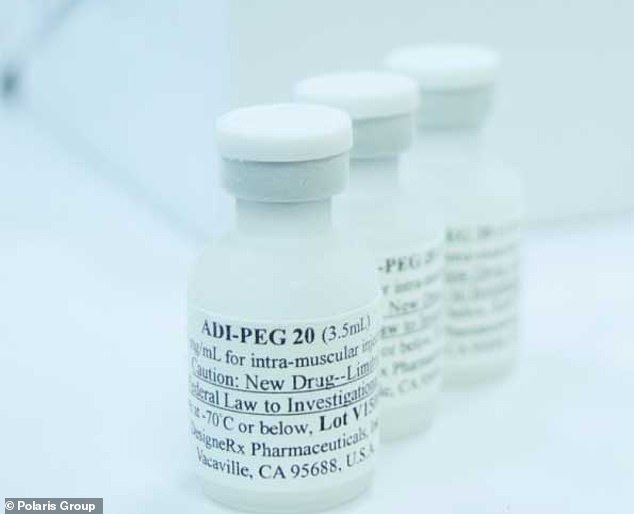Scientists have welcomed the “truly wonderful development” of a new drug for an aggressive and difficult-to-treat form of cancer.
Researchers led by a team at Queen Mary University of London said their new treatment “quadrupled” three-year survival rates and increased median survival by 1.6 months.
Academics said the new drug, which works by cutting off the tumor’s food supply, is the first of its kind for mesothelioma in 20 years.
Mesothelioma is a type of cancer that develops in the lining that covers the surface of some organs in the body, primarily the lining of the lungs. It is usually related to exposure to asbestos.
In the new study, led by Professor Peter Szlosarek of Queen Mary, all patients received chemotherapy every three weeks for up to six cycles. Half also received injections of the new drug, ADI-PEG20 (pegargiminase), while the other half received a placebo, also known as a dummy drug, for two years.

Mesothelioma is a type of cancer that develops in the lining that covers the surface of some organs in the body, primarily the lining of the lungs. It is usually related to exposure to asbestos. In the image, chrysotile asbestos fibers.
Figures from Cancer Research UK suggest there are around 2,700 new cases of mesothelioma each year in the UK.
And every year there are almost 2,400 deaths; Only 2 percent of people are expected to survive 10 years after their diagnosis.
In the new study, led by Professor Peter Szlosarek of Queen Mary, all patients received chemotherapy every three weeks for up to six cycles.
Half also received injections of the new drug, ADI-PEG20 (pegargiminase), while the other half received a placebo for two years.
Some 249 patients with pleural mesothelioma, when the disease affects the lining of the lungs, were included in the final analysis. They had an average age of 70 years.
The ATOMIC-meso trial, sponsored by Polaris Pharmaceuticals, was conducted at 43 centers in five countries between 2017 and 2021.
Patients involved in the study were followed for at least one year.
Those who received pegagiminase and chemotherapy survived an average of 9.3 months, compared with 7.7 months for those who received placebo and chemotherapy, according to a study published in the journal JAMA Oncology.
The researchers said the average “progression-free survival” was 6.2 months with pegagiminase chemotherapy compared with 5.6 months among patients receiving placebo and chemotherapy.
“In this pivotal phase 3, randomized, placebo-controlled trial in 249 patients with pleural mesothelioma, pegagiminase chemotherapy significantly increased median overall survival by 1.6 months and quadrupled survival at 36 months compared with chemotherapy. with placebo,” the authors wrote. .
“Pegagiminase-based chemotherapy was well tolerated and there were no new safety signals.”
The researchers said this is the first successful combination of chemotherapy with a drug targeting cancer metabolism developed for this disease in 20 years.
It comes after two decades of work by Professor Szlosarek following his original discovery that mesothelioma cells lack a protein called ASS1, which allows the cells to make the amino acid arginine.
Using this knowledge, the new drug was developed. ADI-PEG20 works by reducing arginine levels in the bloodstream; In the case of tumor cells that cannot make their arginine due to a lack of an enzyme, this means that their growth is thwarted.
Professor Szlosarek said: “It is truly wonderful to see research into arginine deficiency in cancer cells becoming a reality.”
“This discovery is something I have been driving since its early stages in the laboratory, with a new treatment, ADI-PEG20, now improving the lives of patients affected by mesothelioma.”
Dr Tayyaba Jiwani, director of scientific engagement at Cancer Research UK, which funded the early stages of the research, said: “This study shows the power of discovery research allowing us to delve deeper into the biology of mesothelioma to uncover vulnerabilities that Now we can find out.” Target with ADI-PEG20.’
Liz Darlison, chief executive of the charity Mesothelioma UK, added: “The UK mesothelioma community, including doctors, nurses, patients and families living with mesothelioma, are extremely proud of ATOMiC.
‘It offers another much-needed treatment option and, above all, hope to those living with mesothelioma.
‘We hope to make this treatment available as a standard option for all patients in the future. Congratulations to all those interested and thanks to all who participated.’

